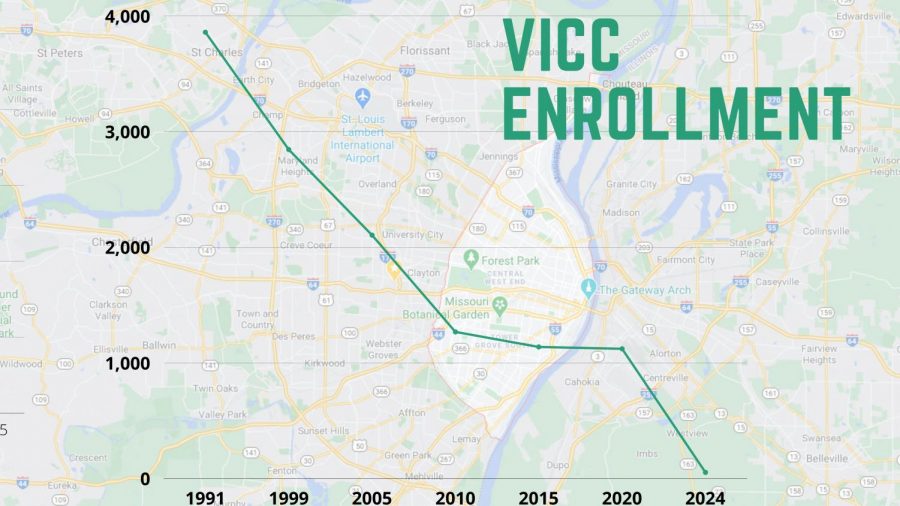A blaring beep startles freshman Tristen Banks awake. One of her hands reaches up to rub the stubborn sleep out of her eyes, while the other searches around to muffle the sound of her alarm. Banks goes through her morning routine and when she heads outside with her backpack, the sky is still a dark indigo and there is a soft squish of mud when she steps into the grass. She checks the time; it is 6:20 a.m.
As of 2020, there were 1,123 Parkway students who were a part of The Voluntary Interdistrict Choice Corporation (VICC) Program who, in one way or another, shared an experience like Banks.’ This program helps to desegregate schools by sending inner-city students to suburban schools and vice versa. However, the VICC Program has slowly been phasing out for about a decade and with the conclusion of the program, many school districts, including Parkway, will no longer allow Black students from the city to attend schools in suburban areas. The VICC Program is accepting students through 2024, with a priority on siblings of students that are already in the program. By 2036, VICC students will no longer be attending Parkway schools. According to Parkway’s VICC Program facilitator Rakiyah Talevedra, out of the 15.8% of Parkway’s Black student population, VICC students make up about 13% of Black students throughout all Parkway Schools.
“The vast majority of students who do participate in the program are African-American students, so if we no longer had those students with us, we would definitely notice that and be missing that diverse population,” Assistant Principal Mario Pupillo said. “That’s not to say all African-American students—obviously, we have a lot of African-American students that both participate in that program and are residents of Parkway School District. But if you removed the [VICC Program], we’d notice the difference there.”
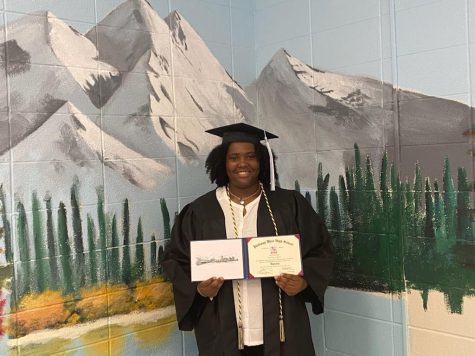
Alumni Tia Reed, a former participant of the VICC Program who graduated in 2020, says that her bus ride to school was about 90 minutes long, but that did not deter her from participating in the program.
“My parents believed that I would have better opportunities to be successful being a part of the VICC Program,” Reed said. “I think I wouldn’t have had the amount of support I got from the teachers and staff from Parkway if I didn’t participate in the program.”
In addition to giving students a chance to learn at different schools, VICC provides transportation to and from activities so that students who live in the city have the chance to participate in school activities.
“VICC has helped me opportunity-wise; this year was my first year with softball, so VICC was my transportation there and VICC has given me an opportunity to experience a sport that I may want to go with in life. Without VICC, I wouldn’t have gotten to experience softball and mingle with other kids who were different from me. It might be something others might want to do in college as far as a career in life. Without VICC, I wouldn’t have had the mindset to do that,” Banks said.
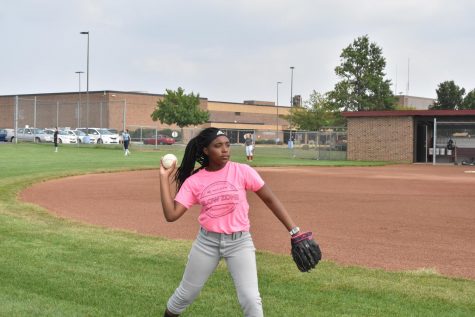
The VICC Program had been in a state of flux since 2008 when the program was originally set to end. The program has actually been revived by extension twice but has finally been planned to officially end in 2024, as a result of an initiative to ban programs based on race. Despite the program always being temporary, there’s been a negative response from students and families toward the ending of VICC, as students who were formerly able to participate in the program would have to stay within the city’s public and magnet schools without access to the higher-ranking districts, such as Kirkwood, Rockwood and Parkway. However, Reed can see both the advantages and disadvantages of the program ending.
“If the VICC program were to discontinue, the city schools would have the opportunity to use the funds that are taken from them by the deseg[regation] program to improve the quality of schools located in the city,” Reed said. “On the other hand, taking away deseg[gregation] students would not only hurt the overall diversity of the school but would also hurt the diversity among Black students. The small number of Black students that would be able to attend Parkway wouldn’t have enough people that look like them attending school. Students would feel uncomfortable in a school setting such as this.”
The remaining spots in the program continue to shrink until 2024 when there will be no new students accepted.
“I think siblings should have the same opportunities that their older siblings had, but I believe that either the VICC program should continue fully or discontinue completely. Allowing only siblings to attend is a tease to city students that don’t have a sibling already in the program. It will not be enough to keep as many Black students as before because the purpose of the sibling tag is to eventually phase out the deseg[gregation] program,” Reed said.
Banks has a younger sister who will be attending Parkway in the 2021-2022 school year. That school year is when schools will start to see a drastic shift in the number of students that will be accepted. Banks’ sister will be one of the 175 students in the VICC Program that will have a chance to participate in the program.
“Even though my sister is one of the kids who will be able to go, it’s not fair for the other students who can’t,” Banks said. “If Parkway was doing that to me, I wouldn’t be the same, my education wouldn’t be the same if I was going to a different school because Parkway’s education and curriculum are good [for me] and very known.”
The small number of Black students that would be able to attend Parkway wouldn’t have enough people that look like them attending school. Students would feel uncomfortable in a school setting such as this.
— Tia Reed
Furthermore, Banks believes that the diversity of her education is preparing her, as well as other students, for life after high school in the real world.
“[Students] need to learn about other cultures and the different ways that people live. It’ll affect those kids because they’re not growing up with people different from them,” Banks said. “That may have other students thinking differently on us, like us Black kids, because they haven’t interacted with us. And that goes for everybody. I have friends who aren’t Black and I don’t think I wouldn’t have gotten the chance to mingle with someone different from me if there was no diversity in school.”
Only 2% of Parkway’s African-American population are residents of the district, according to Talavedra. Reed believes that this 2% of African-Americans will not be enough in the coming years and that the loss of the VICC Program’s added diversity will impact not only the remaining African-American students who are residents of Parkway but all students who attend schools in the district.
“In the real world, students will interact with people from all kinds of backgrounds and I think high school should help prepare students for this. I think that the school environment will be affected by school clubs, sports and peer groups. Students will only have to interact with a very small demographic of [Black] students,” Reed said.
Pupillo additionally notes that racial diversity is not the only diversity we need in schools that the VICC Program helps provide.
“[We would be] noticing a lack of diversity, and even diversity that goes beyond race, diversity of culture, experiences, knowledge, geography, just all those different things that students that reside in St. Louis CIty bring to our building when they come every day,” Pupillo said. “There’s a lot of opportunities there, to learn and share and grow together, and I think that’s a piece we would miss.”
This story was originally published on Pathfinder on March 3, 2021.

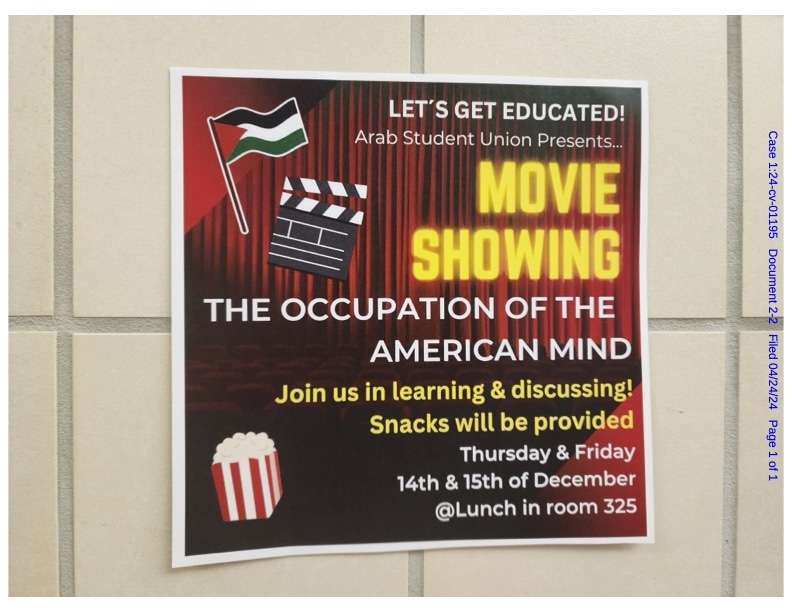
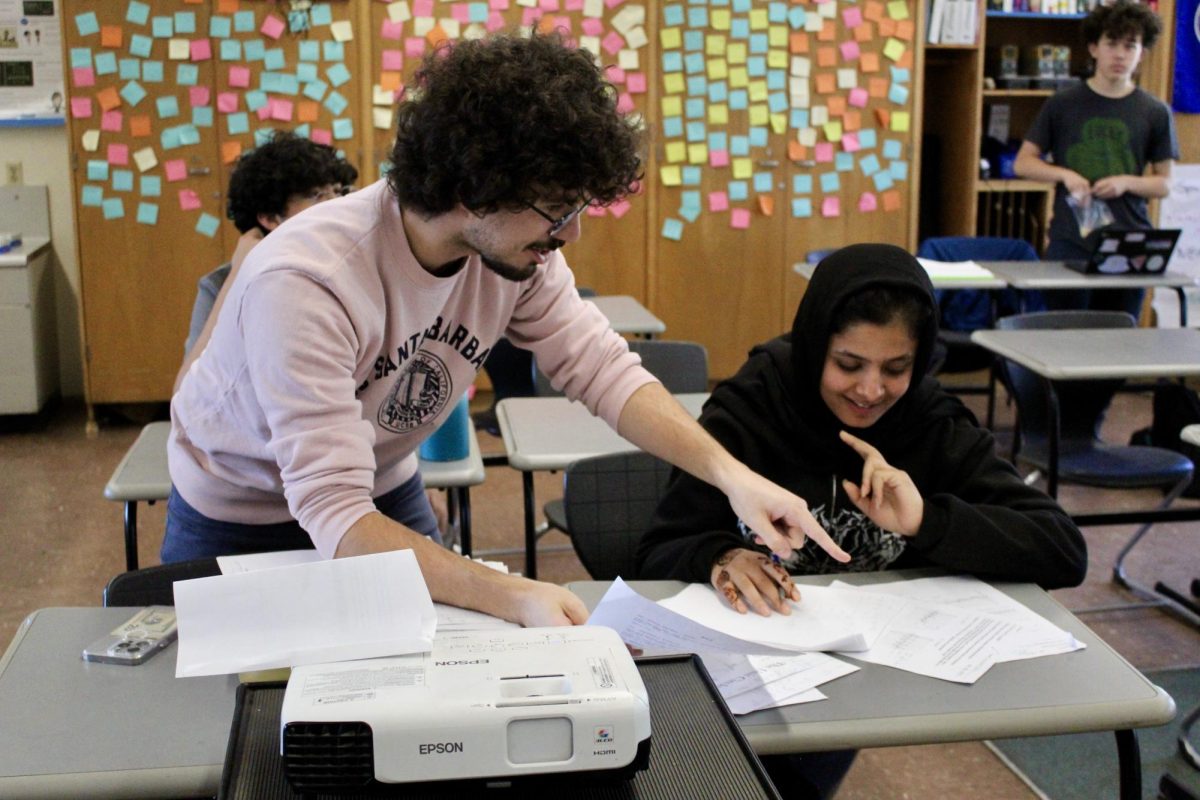
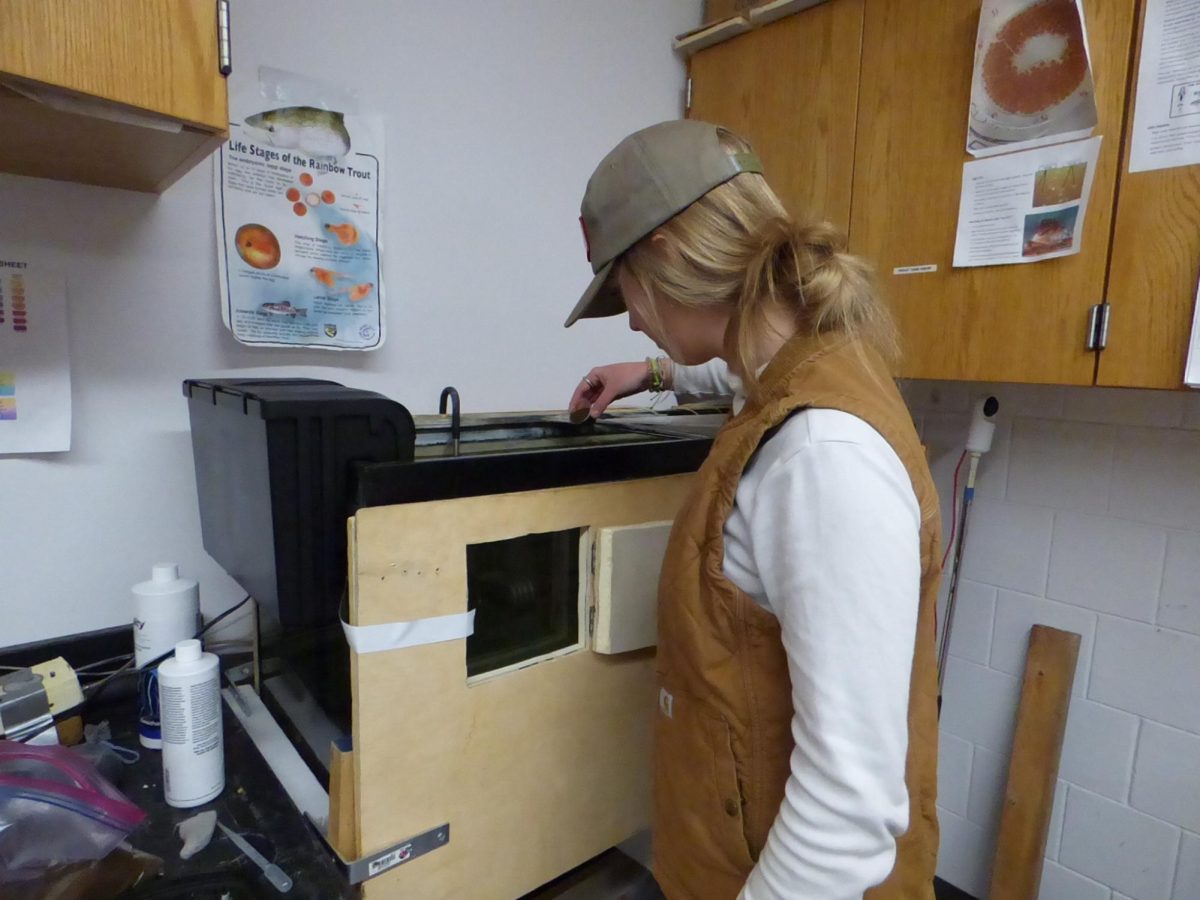





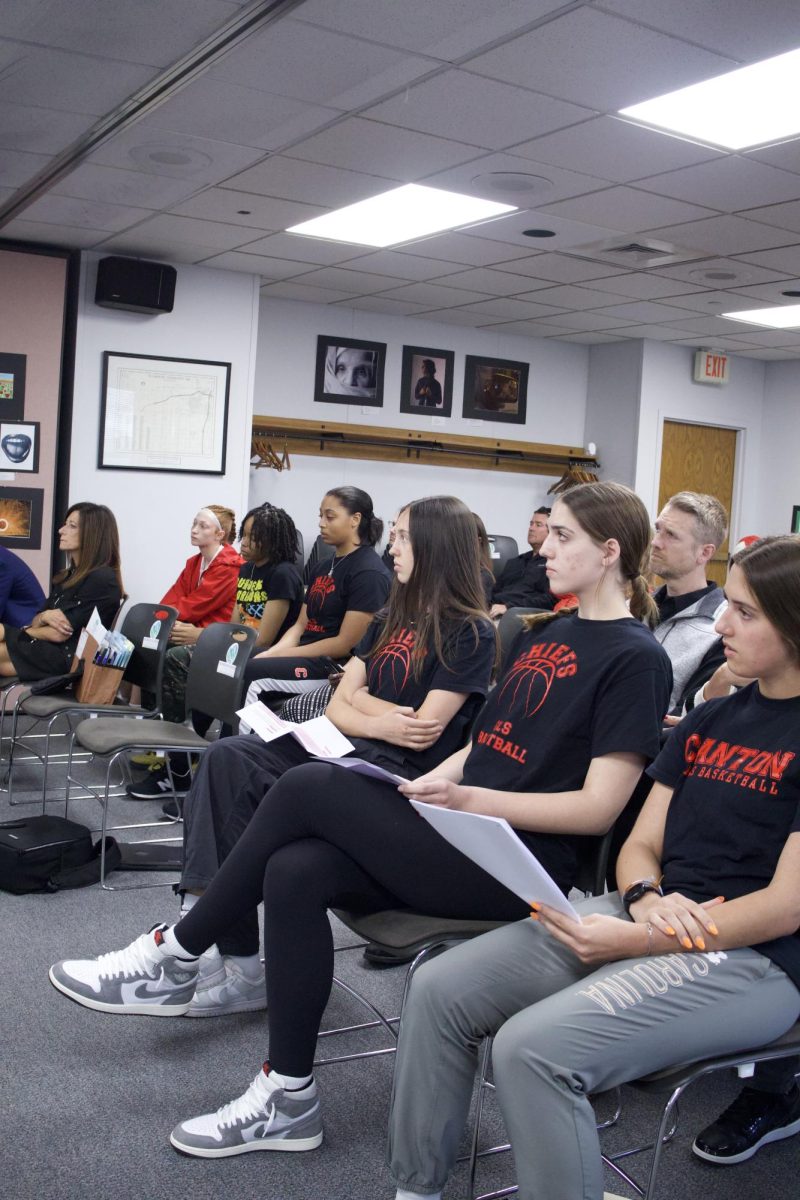

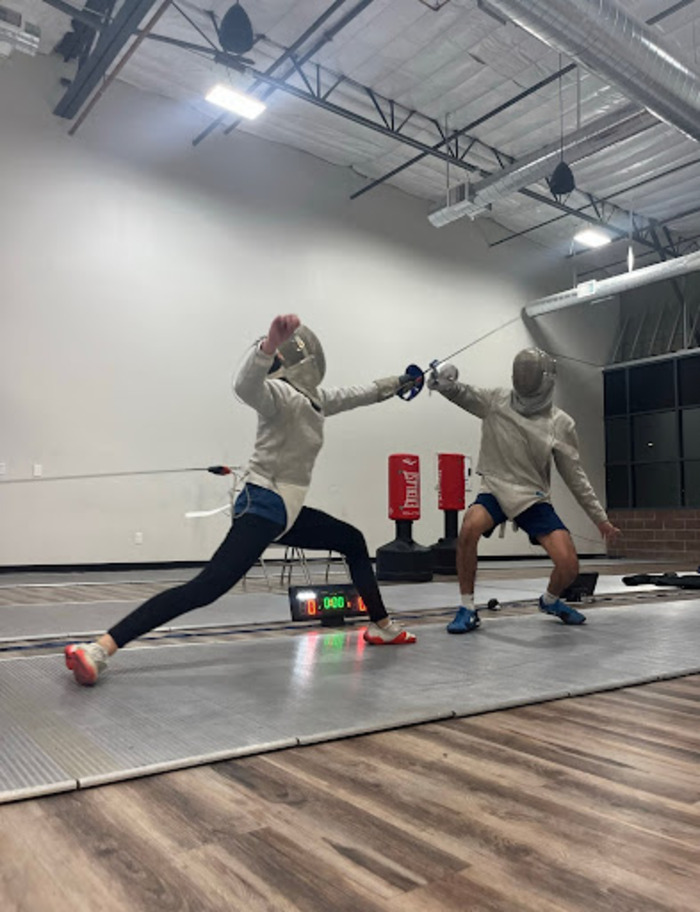



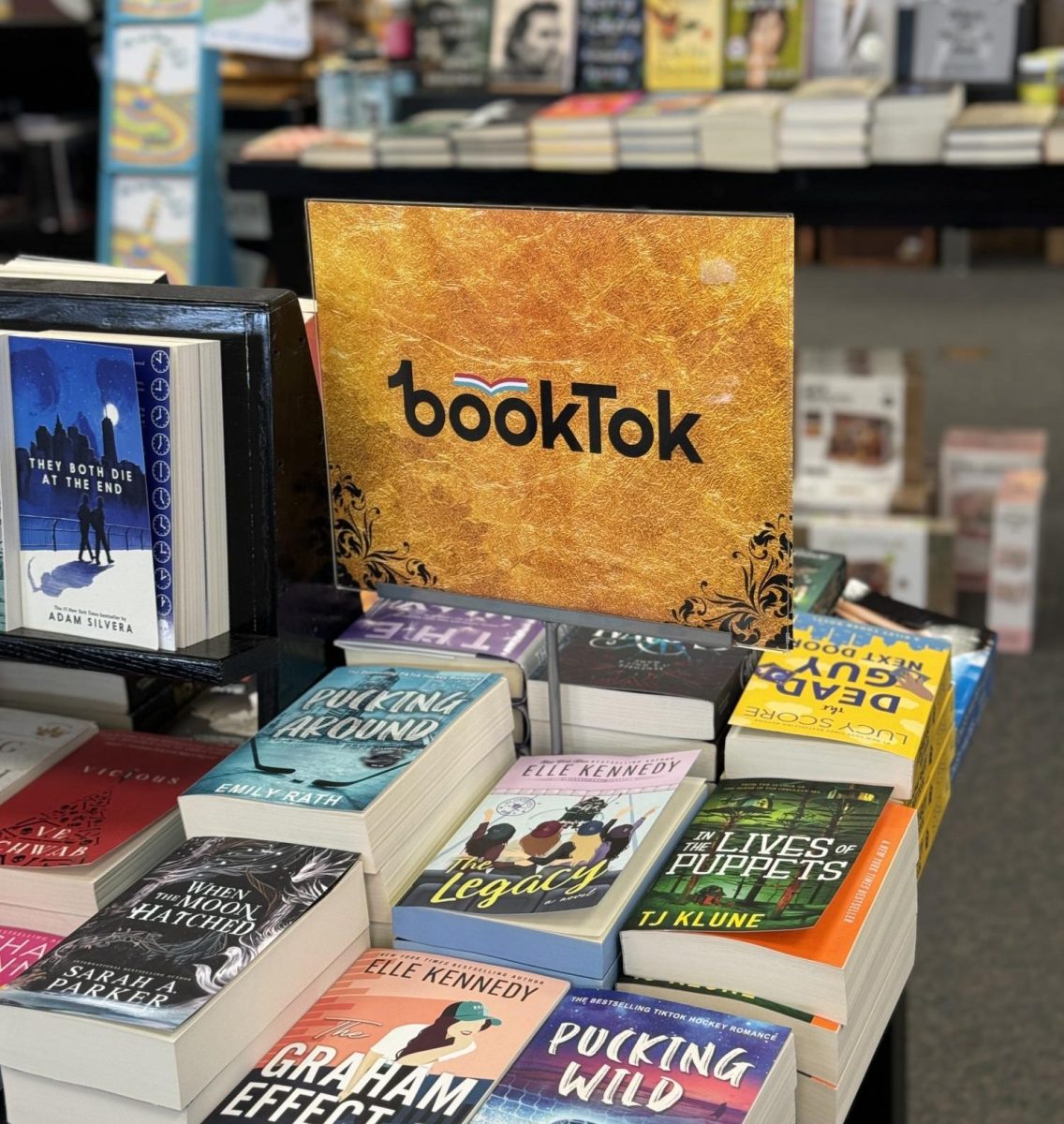
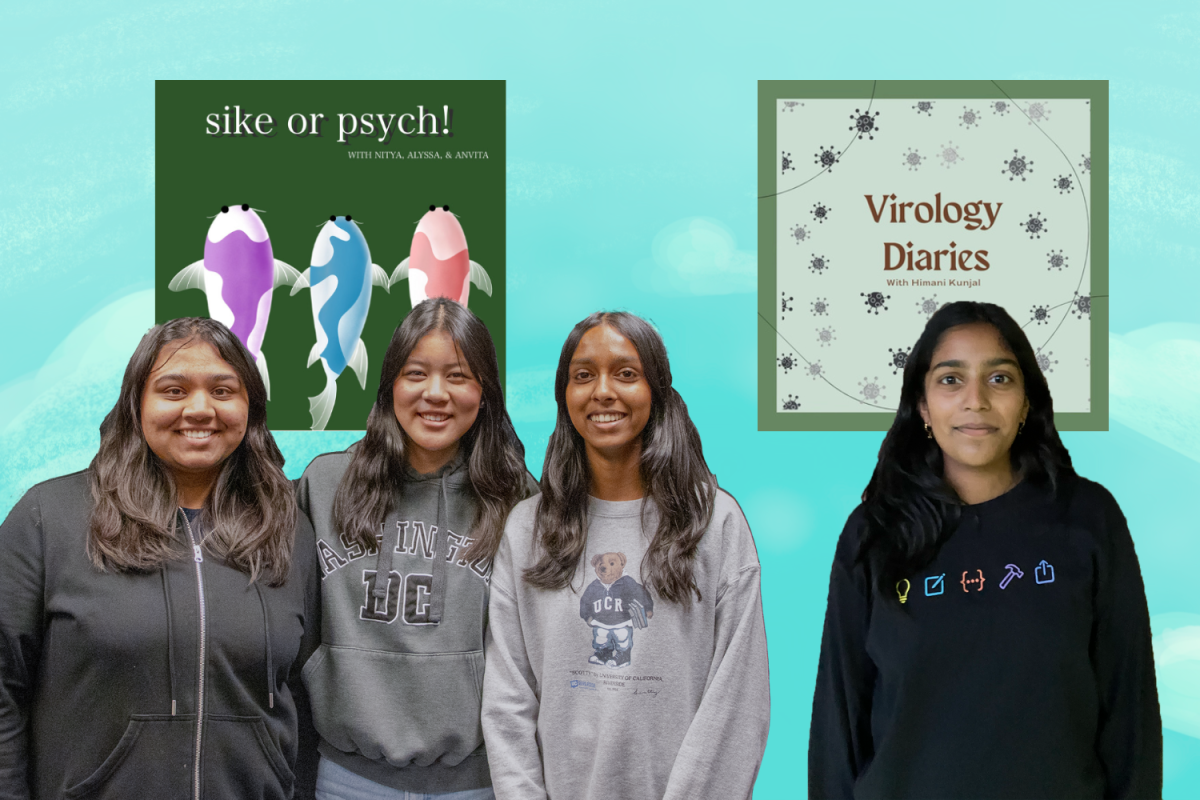
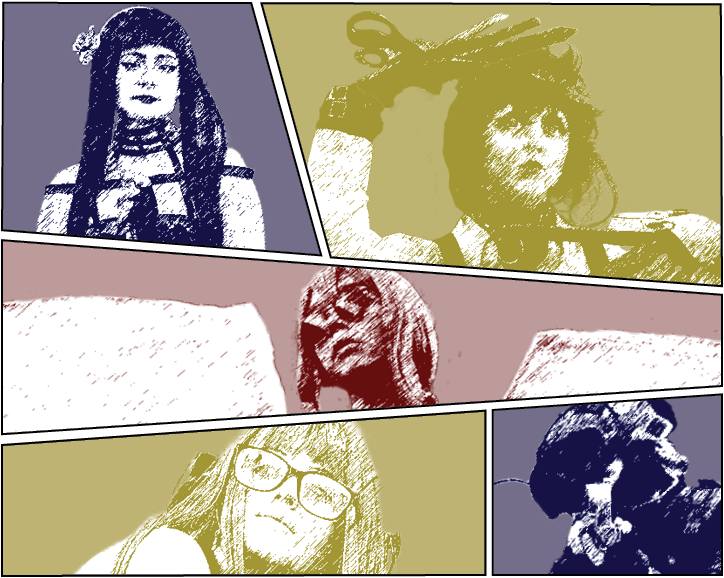













![IN THE SPOTLIGHT: Junior Zalie Mann performs “I Love to Cry at Weddings,” an ensemble piece from the fall musical Sweet Charity, to prospective students during the Fine Arts Showcase on Wednesday, Nov. 8. The showcase is a compilation of performances and demonstrations from each fine arts strand offered at McCallum. This show is put on so that prospective students can see if they are interested in joining an academy or major.
Sweet Charity originally ran the weekends of Sept. 28 and Oct. 8, but made a comeback for the Fine Arts Showcase.
“[Being at the front in the spotlight] is my favorite part of the whole dance, so I was super happy to be on stage performing and smiling at the audience,” Mann said.
Mann performed in both the musical theatre performance and dance excerpt “Ethereal,” a contemporary piece choreographed by the new dance director Terrance Carson, in the showcase. With also being a dance ambassador, Mann got to talk about what MAC dance is, her experience and answer any questions the aspiring arts majors and their parents may have.
Caption by Maya Tackett.](https://bestofsno.com/wp-content/uploads/2024/02/53321803427_47cd17fe70_o-1-1200x800.jpg)
![SPREADING THE JOY: Sophomore Chim Becker poses with sophomores Cozbi Sims and Lou Davidson while manning a table at the Hispanic Heritage treat day during lunch of Sept 28. Becker is a part of the students of color alliance, who put together the activity to raise money for their club.
“It [the stand] was really fun because McCallum has a lot of latino kids,” Becker said. “And I think it was nice that I could share the stuff that I usually just have at home with people who have never tried it before.”
Becker recognizes the importance of celebrating Hispanic heritage at Mac.
“I think its important to celebrate,” Becker said. “Because our culture is awesome and super cool, and everybody should be able to learn about other cultures of the world.”
Caption by JoJo Barnard.](https://bestofsno.com/wp-content/uploads/2024/01/53221601352_4127a81c41_o-1200x675.jpg)





